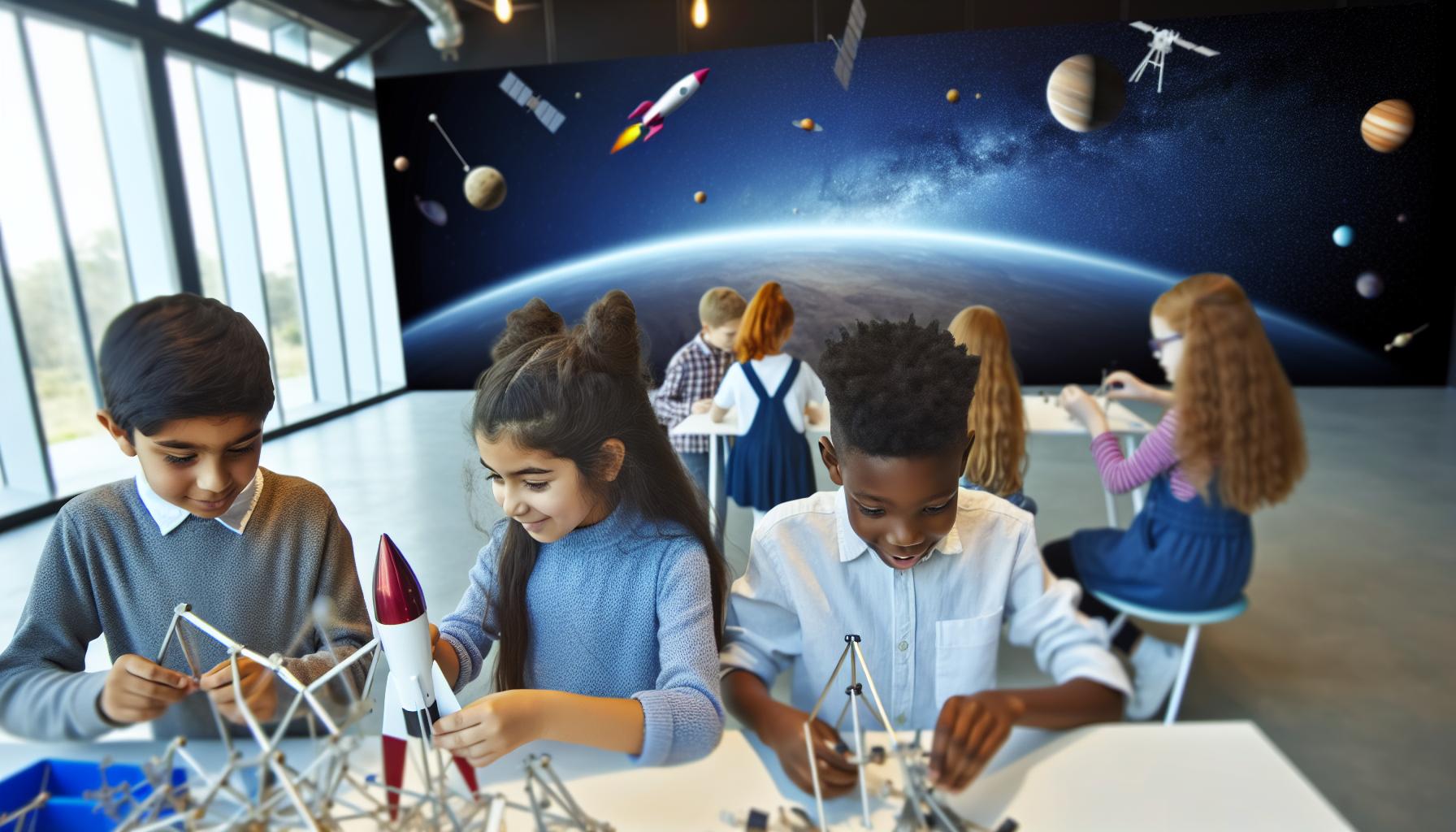In a world that's rapidly advancing in technology and science, it's crucial to introduce our children to the limitless possibilities that STEM fields offer.
Igniting Curiosity Through Space Exploration
In a world that's rapidly advancing in technology and science, it's crucial to introduce our children to the limitless possibilities that STEM fields offer. The journey to becoming an astronaut, engineer, or scientist starts with curiosity and education. By exposing them to the wonders of space exploration and the marvels of science from an early age, we can inspire the next generation of innovators and explorers. It’s not just about teaching facts; it’s about making learning fun and relevant.
One way to ignite curiosity in young minds is by sharing captivating space exploration stories. By recounting the adventures of astronauts, the mysteries of the universe, and the challenges of space travel, we can capture their imagination and spark their interest in STEM. Additionally, integrating interactive elements such as virtual reality experiences or hands-on experiments can further engage children and encourage them to explore the wonders of space.
Another effective strategy is to highlight the real-world applications of STEM in space exploration. By showcasing how scientific concepts and engineering principles are used to solve problems in space missions, we can demonstrate the relevance of STEM education in shaping the future of space exploration. This can inspire children to see themselves as future scientists, engineers, or astronauts, and motivate them to pursue their interests in these fields.
Interactive Learning with Space-themed Activities
Integrating space-themed activities into children's education can make the learning process exciting and memorable. By combining space stories with hands-on projects, we can provide children with a holistic learning experience. For example, building model rockets or designing space settlements can allow children to apply their knowledge of science and engineering in a practical and creative way.
Another interactive learning activity is to use educational toys that focus on space exploration. These toys can range from building blocks that allow children to construct their own space stations to telescopes that enable them to observe celestial objects. By providing children with these tools, we can encourage their curiosity and provide them with opportunities to explore and learn about space in a hands-on manner.
Incorporating technology in space-themed education can enhance interactive learning. Virtual reality simulations or online educational platforms can transport children to outer space, allowing them to virtually explore the planets, galaxies, and other celestial bodies. This immersive experience can deepen their understanding of space and inspire their curiosity.
Community Engagement in Space Education
Engaging the community in space education can have a profound impact on children's interest in STEM. By organising space-themed events, workshops, or science fairs, we can create opportunities for children to interact with professionals in the field and learn from their experiences. Guest speakers, such as astronauts or scientists, can share their knowledge and inspire young minds.
Collaborating with local libraries, museums, or science centres can also provide access to space-themed resources and exhibits. These institutions often offer educational programs and workshops that focus on space exploration. By partnering with them, we can extend the reach of space education and provide children with additional avenues to learn and explore.
Additionally, creating online communities or forums dedicated to space education can connect children with like-minded individuals and foster a sense of belonging. These platforms can provide a space for children to share their projects, ask questions, and engage in discussions about space exploration. By nurturing a supportive community, we can encourage children to pursue their interests in STEM and provide them with a network of peers who share their passion. As space educators, we do indeed have a Space Education community Facebook group that we are building, you can access it here.


